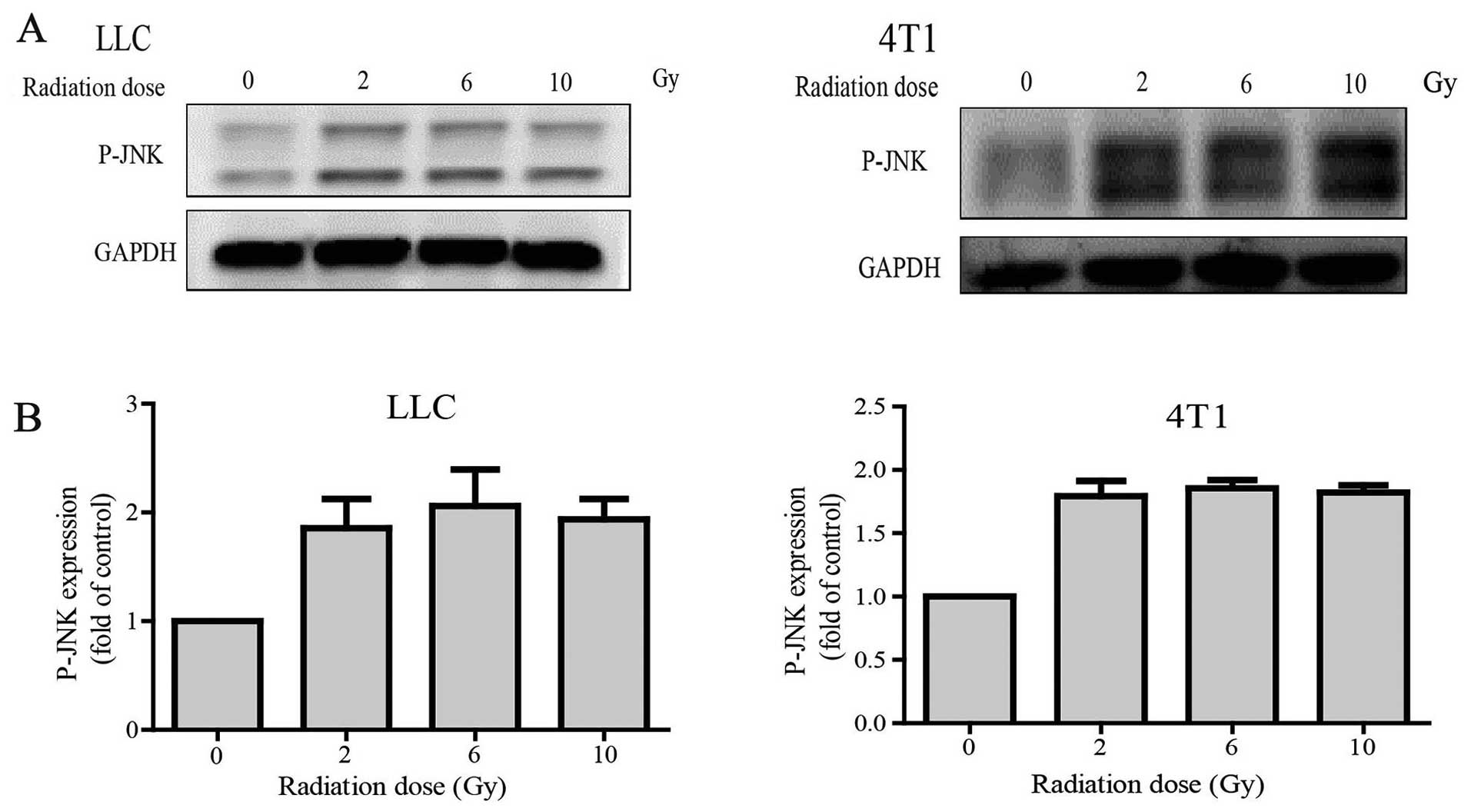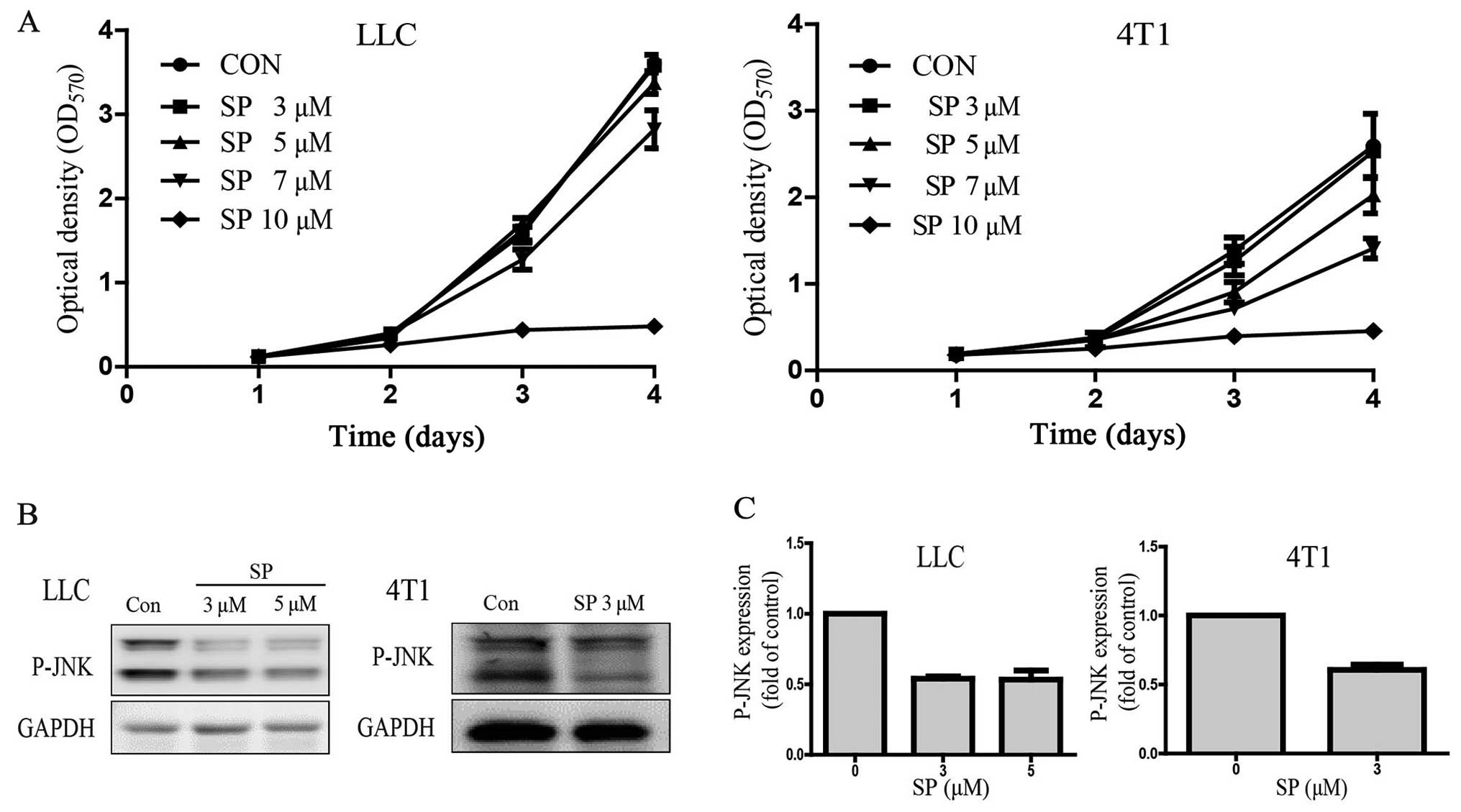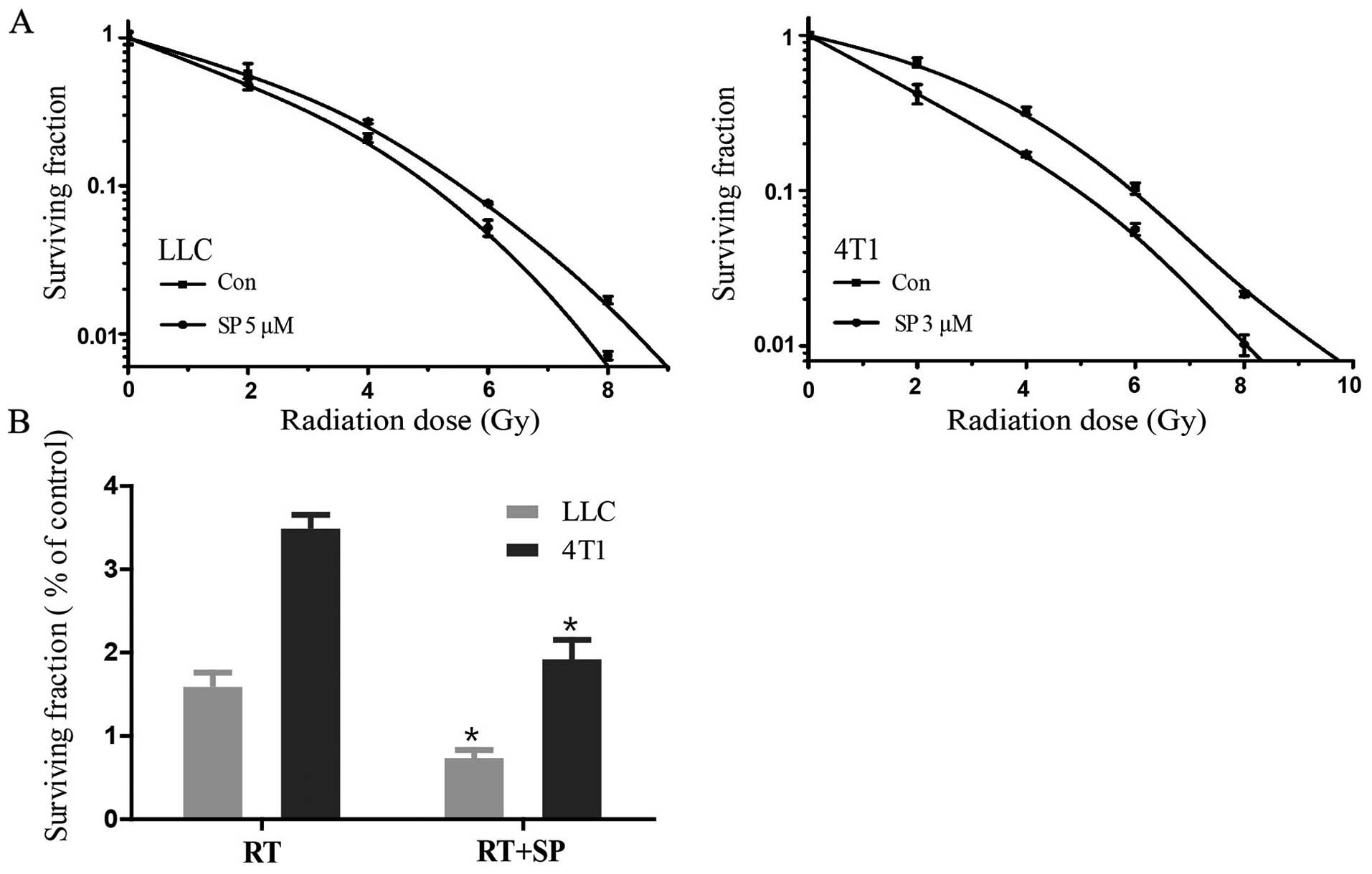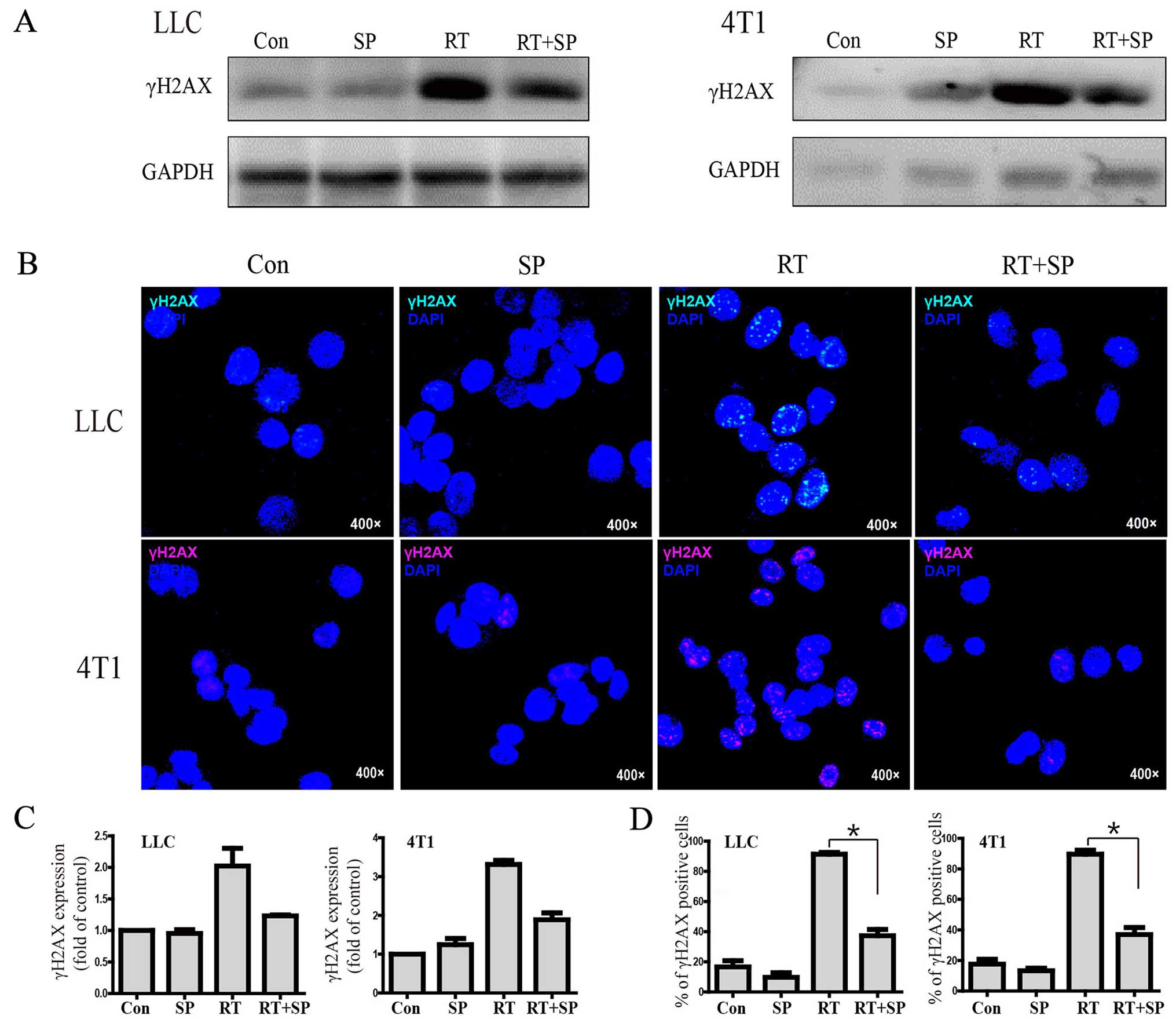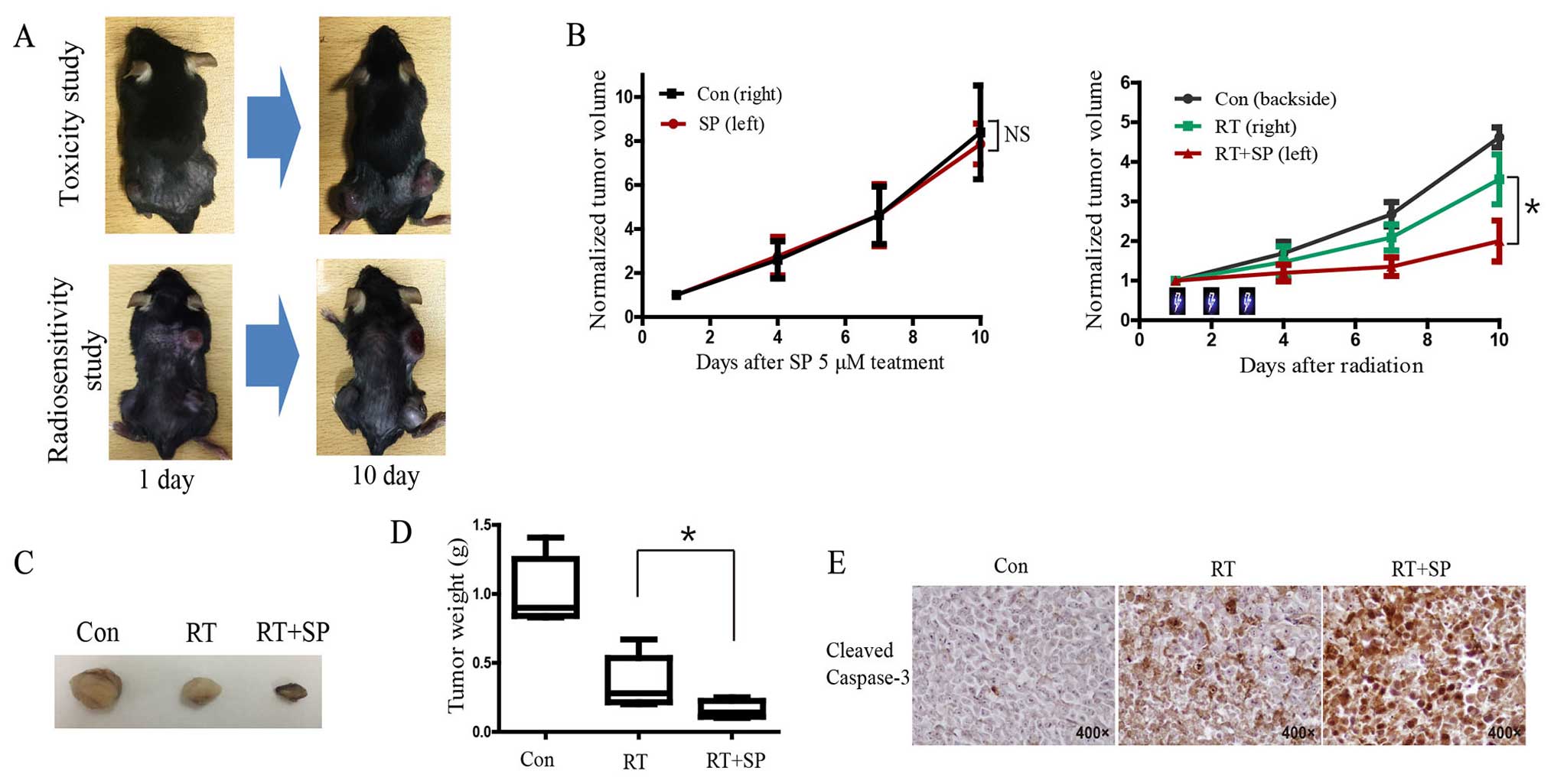|
1
|
Davis RJ: Signal transduction by the JNK
group of MAP kinases. Cell. 103:239–252. 2000. View Article : Google Scholar : PubMed/NCBI
|
|
2
|
Bode AM and Dong Z: The functional
contrariety of JNK. Mol Carcinog. 46:591–598. 2007. View Article : Google Scholar : PubMed/NCBI
|
|
3
|
Weston CR and Davis RJ: The JNK signal
transduction pathway. Curr Opin Cell Biol. 19:142–149. 2007.
View Article : Google Scholar : PubMed/NCBI
|
|
4
|
Lu C, Zhu F, Cho YY, Tang F, Zykova T, Ma
WY, Bode AM and Dong Z: Cell apoptosis: Requirement of H2AX in DNA
ladder formation, but not for the activation of caspase-3. Mol
Cell. 23:121–132. 2006. View Article : Google Scholar : PubMed/NCBI
|
|
5
|
Yue WY, Clark JJ, Telisak M and Hansen MR:
Inhibition of c-Jun N-terminal kinase activity enhances vestibular
schwannoma cell sensitivity to gamma irradiation. Neurosurgery.
73:506–516. 2013. View Article : Google Scholar : PubMed/NCBI
|
|
6
|
Bennett BL, Sasaki DT, Murray BW, O'Leary
EC, Sakata ST, Xu W, Leisten JC, Motiwala A, Pierce S, Satoh Y, et
al: SP600125, an anthrapyrazolone inhibitor of Jun N-terminal
kinase. Proc Natl Acad Sci USA. 98:13681–13686. 2001. View Article : Google Scholar : PubMed/NCBI
|
|
7
|
Guan QH, Pei DS, Zhang QG, Hao ZB, Xu TL
and Zhang GY: The neuroprotective action of SP600125, a new
inhibitor of JNK, on transient brain ischemia/reperfusion-induced
neuronal death in rat hippocampal CA1 via nuclear and non-nuclear
pathways. Brain Res. 1035:51–59. 2005. View Article : Google Scholar : PubMed/NCBI
|
|
8
|
Li S, Li C, Ryu HH, Lim SH, Jang WY and
Jung S: Bacitracin inhibits the migration of U87-MG glioma cells
via interferences of the integrin outside-in signaling pathway. J
Korean Neurosurg Soc. 59:106–116. 2016. View Article : Google Scholar : PubMed/NCBI
|
|
9
|
Jin SG, Ryu HH, Li SY, Li CH, Lim SH, Jang
WY and Jung S: Nogo-A inhibits the migration and invasion of human
malignant glioma U87MG cells. Oncol Rep. 35:3395–3402.
2016.PubMed/NCBI
|
|
10
|
Wen M, Jung S, Moon KS, Jiang SN, Li SY
and Min JJ: Targeting orthotopic glioma in mice with genetically
engineered Salmonella typhimurium. J Korean Neurosurg Soc.
55:131–135. 2014. View Article : Google Scholar : PubMed/NCBI
|
|
11
|
Wang W, Shi L, Xie Y, Ma C, Li W, Su X,
Huang S, Chen R, Zhu Z, Mao Z, et al: SP600125, a new JNK
inhibitor, protects dopaminergic neurons in the MPTP model of
Parkinson's disease. Neurosci Res. 48:195–202. 2004. View Article : Google Scholar : PubMed/NCBI
|
|
12
|
Yue WY, Clark JJ, Fernando A, Domann F and
Hansen MR: Contribution of persistent C-Jun N-terminal kinase
activity to the survival of human vestibular schwannoma cells by
suppression of accumulation of mitochondrial superoxides. Neuro
Oncol. 13:961–973. 2011. View Article : Google Scholar : PubMed/NCBI
|
|
13
|
Lin NU, Bellon JR and Winer EP: CNS
metastases in breast cancer. J Clin Oncol. 22:3608–3617. 2004.
View Article : Google Scholar : PubMed/NCBI
|
|
14
|
Shaw MG and Ball DL: Treatment of brain
metastases in lung cancer: Strategies to avoid/reduce late
complications of whole brain radiation therapy. Curr Treat Options
Oncol. 14:553–567. 2013. View Article : Google Scholar : PubMed/NCBI
|
|
15
|
Jackson SP and Bartek J: The DNA-damage
response in human biology and disease. Nature. 461:1071–1078. 2009.
View Article : Google Scholar : PubMed/NCBI
|
|
16
|
Fernandez-Capetillo O, Chen HT, Celeste A,
Ward I, Romanienko PJ, Morales JC, Naka K, Xia Z, Camerini-Otero
RD, Motoyama N, et al: DNA damage-induced G2-M
checkpoint activation by histone H2AX and 53BP1. Nat Cell Biol.
4:993–997. 2002. View
Article : Google Scholar : PubMed/NCBI
|
|
17
|
Paull TT, Rogakou EP, Yamazaki V,
Kirchgessner CU, Gellert M and Bonner WM: A critical role for
histone H2AX in recruitment of repair factors to nuclear foci after
DNA damage. Curr Biol. 10:886–895. 2000. View Article : Google Scholar : PubMed/NCBI
|
|
18
|
Burma S, Chen BP, Murphy M, Kurimasa A and
Chen DJ: ATM phosphorylates histone H2AX in response to DNA
double-strand breaks. J Biol Chem. 276:42462–42467. 2001.
View Article : Google Scholar : PubMed/NCBI
|
|
19
|
Wang H, Wang M, Wang H, Böcker W and
Iliakis G: Complex H2AX phosphorylation patterns by multiple
kinases including ATM and DNA-PK in human cells exposed to ionizing
radiation and treated with kinase inhibitors. J Cell Physiol.
202:492–502. 2005. View Article : Google Scholar : PubMed/NCBI
|
|
20
|
Ward IM and Chen J: Histone H2AX is
phosphorylated in an ATR-dependent manner in response to
replicational stress. J Biol Chem. 276:47759–47762. 2001.PubMed/NCBI
|
|
21
|
Hibi M, Lin A, Smeal T, Minden A and Karin
M: Identification of an oncoprotein- and UV-responsive protein
kinase that binds and potentiates the c-Jun activation domain.
Genes Dev. 7:2135–2148. 1993. View Article : Google Scholar : PubMed/NCBI
|
|
22
|
Waetzig V and Herdegen T: Context-specific
inhibition of JNKs: Overcoming the dilemma of protection and
damage. Trends Pharmacol Sci. 26:455–461. 2005.PubMed/NCBI
|
|
23
|
Oltmanns U, Issa R, Sukkar MB, John M and
Chung KF: Role of c-jun N-terminal kinase in the induced release of
GM-CSF, RANTES and IL-8 from human airway smooth muscle cells. Br J
Pharmacol. 139:1228–1234. 2003. View Article : Google Scholar : PubMed/NCBI
|
|
24
|
Barr RK, Kendrick TS and Bogoyevitch MA:
Identification of the critical features of a small peptide
inhibitor of JNK activity. J Biol Chem. 277:10987–10997. 2002.
View Article : Google Scholar : PubMed/NCBI
|
|
25
|
An J, Huang YC, Xu QZ, Zhou LJ, Shang ZF,
Huang B, Wang Y, Liu XD, Wu DC and Zhou PK: DNA-PKcs plays a
dominant role in the regulation of H2AX phosphorylation in response
to DNA damage and cell cycle progression. BMC Mol Biol. 11:182010.
View Article : Google Scholar : PubMed/NCBI
|
|
26
|
Kim CH, Won M, Choi CH, Ahn J, Kim BK,
Song KB, Kang CM and Chung KS: Increase of RhoB in
gamma-radiation-induced apoptosis is regulated by c-Jun N-terminal
kinase in Jurkat T cells. Biochem Biophys Res Commun.
391:1182–1186. 2010. View Article : Google Scholar : PubMed/NCBI
|
|
27
|
Han Y, Wang Y, Xu HT, Yang LH, Wei Q, Liu
Y, Zhang Y, Zhao Y, Dai SD, Miao Y, et al: X-radiation induces
non-small-cell lung cancer apoptosis by upregulation of Axin
expression. Int J Radiat Oncol Biol Phys. 75:518–526. 2009.
View Article : Google Scholar : PubMed/NCBI
|
|
28
|
Gao Z, Sarsour EH, Kalen AL, Li L, Kumar
MG and Goswami PC: Late ROS accumulation and radiosensitivity in
SOD1-overexpressing human glioma cells. Free Radic Biol Med.
45:1501–1509. 2008. View Article : Google Scholar : PubMed/NCBI
|
|
29
|
Shen HM and Liu ZG: JNK signaling pathway
is a key modulator in cell death mediated by reactive oxygen and
nitrogen species. Free Radic Biol Med. 40:928–939. 2006. View Article : Google Scholar : PubMed/NCBI
|
|
30
|
Jena NR: DNA damage by reactive species:
Mechanisms, mutation and repair. J Biosci. 37:503–517. 2012.
View Article : Google Scholar : PubMed/NCBI
|
|
31
|
Yu CC, Ko FY, Yu CS, Lin CC, Huang YP,
Yang JS, Lin JP and Chung JG: Norcantharidin triggers cell death
and DNA damage through S-phase arrest and ROS-modulated apoptotic
pathways in TSGH 8301 human urinary bladder carcinoma cells. Int J
Oncol. 41:1050–1060. 2012.PubMed/NCBI
|
|
32
|
Zeng H, Kong X, Peng H, Chen Y, Cai S, Luo
H and Chen P: Apoptosis and Bcl-2 family proteins, taken to chronic
obstructive pulmonary disease. Eur Rev Med Pharmacol Sci.
16:711–727. 2012.PubMed/NCBI
|
|
33
|
Tang S, Hu J, Meng Q, Dong X, Wang K, Qi
Y, Chu C, Zhang X and Hou L: Daidzein induced apoptosis via
down-regulation of Bcl-2/Bax and triggering of the mitochondrial
pathway in BGC-823 cells. Cell Biochem Biophys. 65:197–202. 2013.
View Article : Google Scholar : PubMed/NCBI
|
|
34
|
Miwa M and Masutani M:
PolyADP-ribosylation and cancer. Cancer Sci. 98:1528–1535. 2007.
View Article : Google Scholar : PubMed/NCBI
|
|
35
|
Wei L, Nakajima S, Hsieh CL, Kanno S,
Masutani M, Levine AS, Yasui A and Lan L: Damage response of XRCC1
at sites of DNA single strand breaks is regulated by
phosphorylation and ubiquitylation after degradation of
poly(ADP-ribose). J Cell Sci. 126:4414–4423. 2013. View Article : Google Scholar : PubMed/NCBI
|
|
36
|
Germain M, Affar EB, D'Amours D, Dixit VM,
Salvesen GS and Poirier GG: Cleavage of automodified
poly(ADP-ribose) polymerase during apoptosis. Evidence for
involvement of caspase-7. J Biol Chem. 274:28379–28384. 1999.
View Article : Google Scholar : PubMed/NCBI
|















